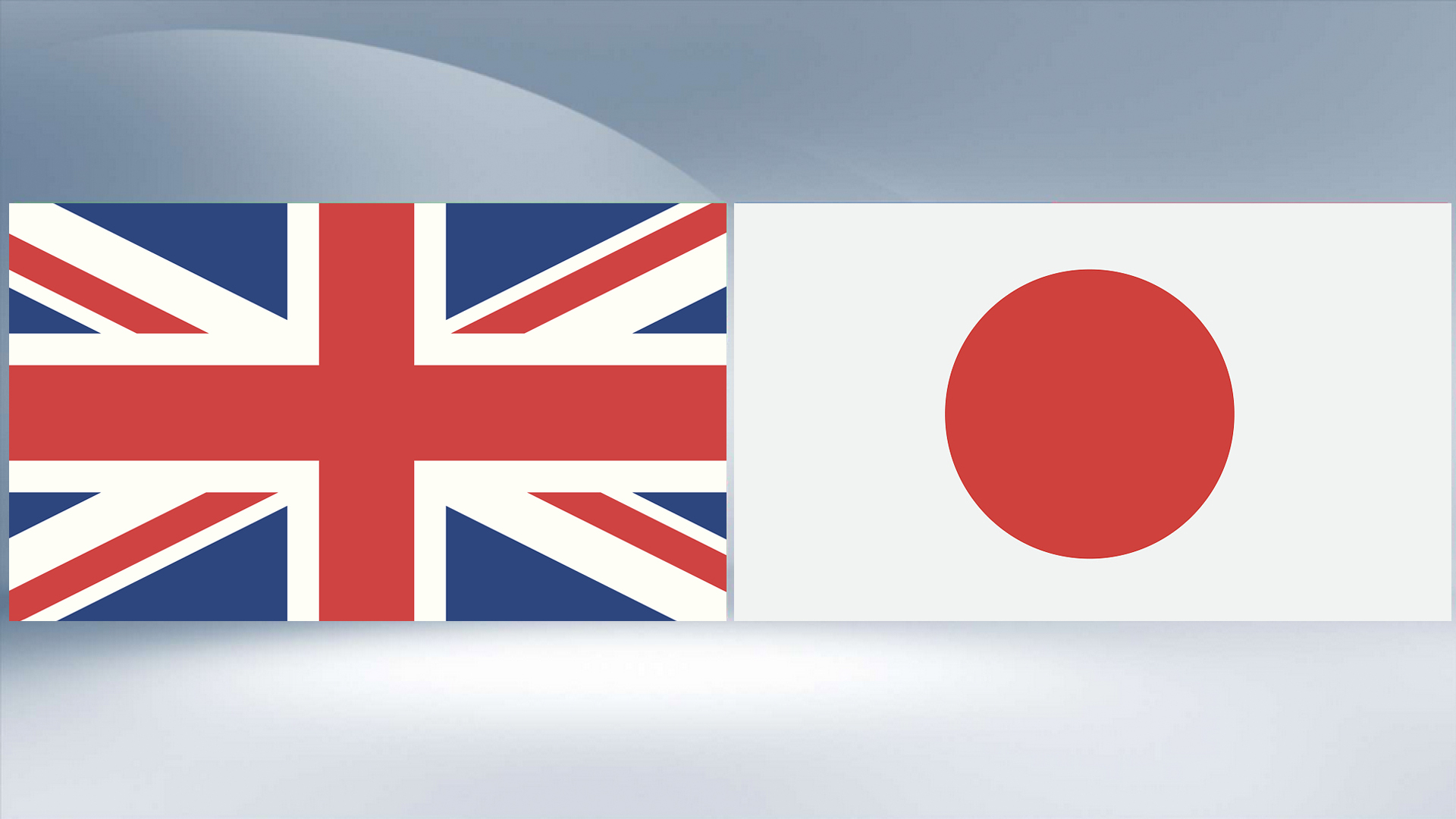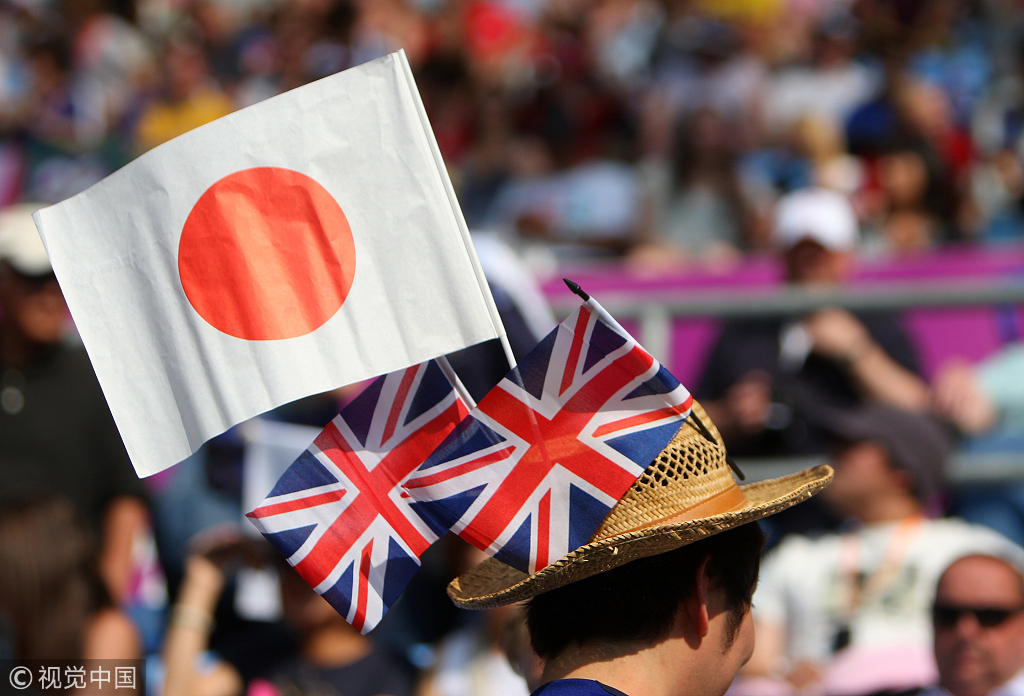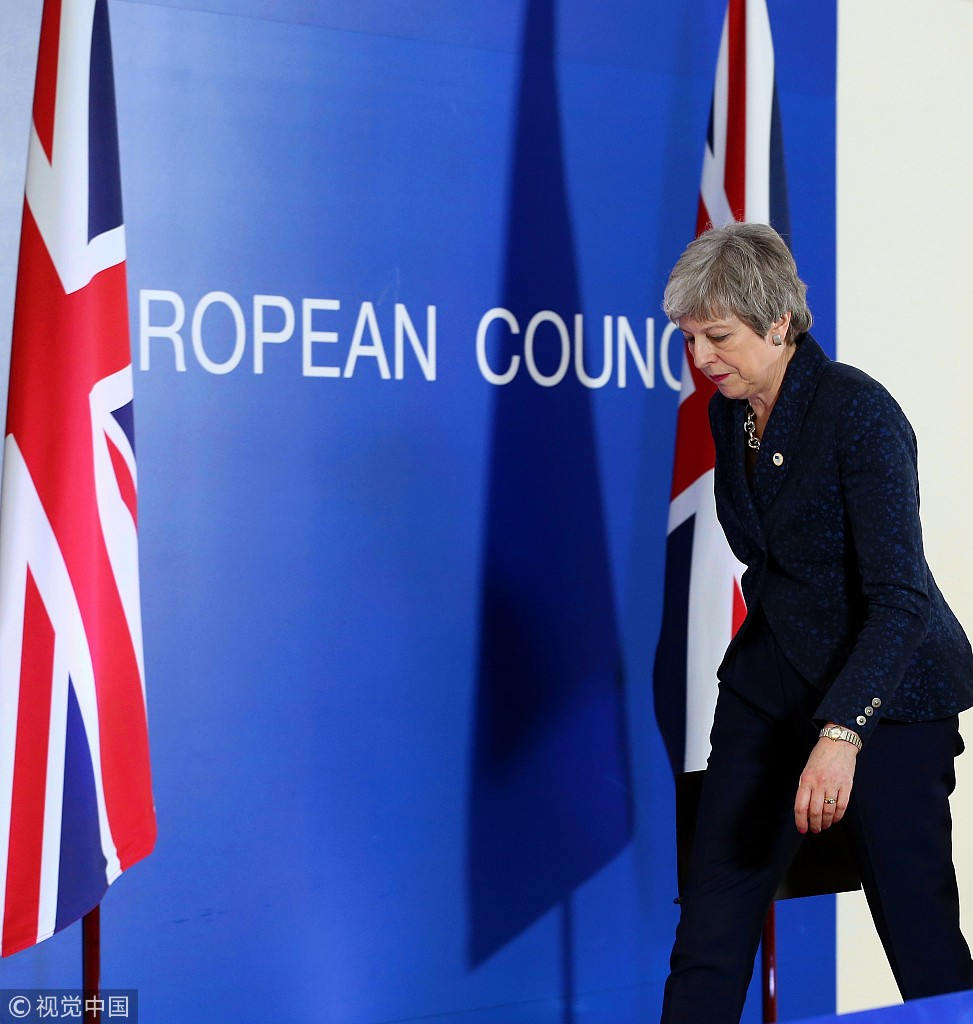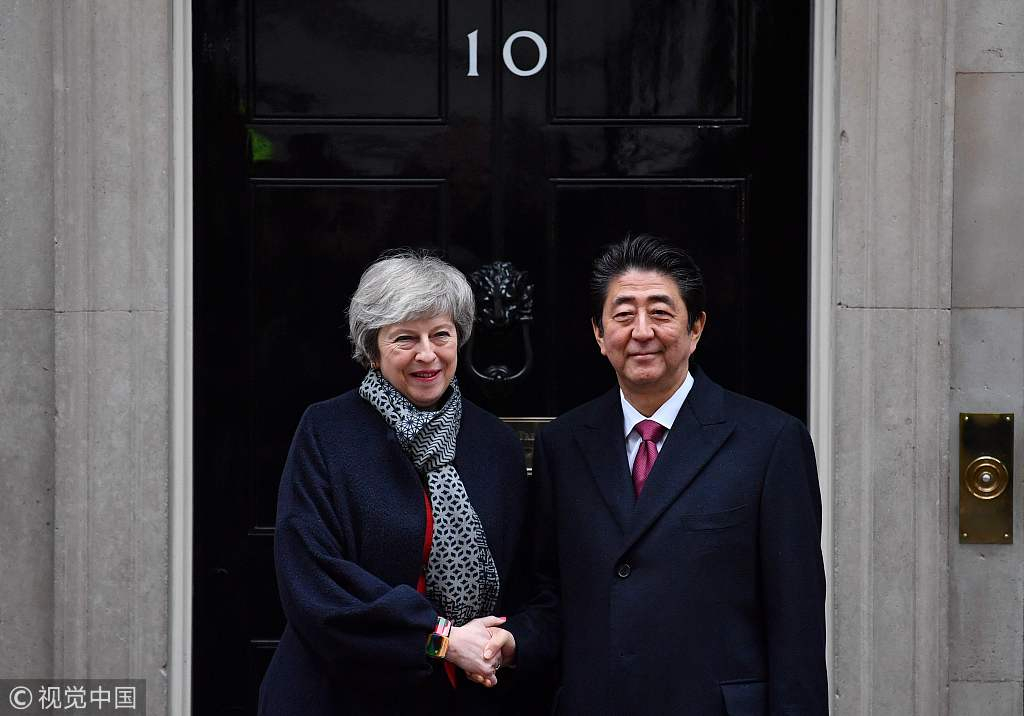
Opinion
16:04, 24-Mar-2019
A semi-alliance: Japan-UK relations step up a level
Cheng Xiaohe

Editor's note: Cheng Xiaohe is an associate professor at the School of International Studies, Renmin University of China, and a senior researcher at the Pangoal Institute. The article reflects the author's opinion, and not necessarily the views of CGTN.
Japan has had choppy relations with some major powers in recent years, but its relationship with the UK is an exception, partially because of the ongoing Brexit drama.
In June 2016, the UK voted to leave the European Union in a deeply divisive referendum. In the following year, the UK officially initiated the Brexit process and set to accomplish it in two years. Brexit, which has been haunting UK's political and economic life for a long time has rattled Japan, but has also generated a new momentum for Japan-UK relations.
Japan has many reasons to worry about Brexit. In addition to a shared similar geographic feature, monarchical political system and world outlook, Japan has built a high business stake in the UK. About a thousand Japanese companies have invested more than 40 billion pounds in the UK and turned the host country into a manufacturing hub and a gateway to European markets.
The planned Brexit poses two basic questions before the Japanese government: How the normal business connections between the Japanese businesses in UK and EU markets can be maintained? And if not, what should Japanese companies and the government do now and in the future?
In order to address the two above-mentioned questions, the Japanese government has unusually adopted an interventionist approach, vocally opposing UK's withdrawal from the EU.

The national flags of Japan and the UK. /VCG Photo
The national flags of Japan and the UK. /VCG Photo
As early as September 2016, a Japanese government-sponsored task force on Brexit published a 15-page document, titled "Japan's message to the UK and the EU", that sternly warned "Japanese businesses with their European headquarters in the UK may decide to transfer their head-office functions to Continental Europe if EU laws cease to be applicable in the UK after its withdrawal."
In May 2017, Abe came to London to register his deep concern over Brexit. In August-September 2017, Theresa May reciprocated by paying a visit to Japan to calm Japan's Brexit anxiety.
May assured: "During the period before we leave the European Union, the UK will continue to champion the early signature and implementation of the Japan-EU Economic Partnership Agreement."
Unfortunately, May's assurance did not help. In February 2018, Koji Tsuruoka, Japanese Ambassador to the UK, reiterated the warning that Japanese companies would have to leave the UK if they could not make money due to Brexit. In January this year, Abe once again showed up in London, calling for an orderly Brexit process with "transparency, predictability and legal stability."
As a response to the exacerbated chaos caused by Brexit and an effort to influence the ongoing Brexit-related debate inside the UK, in August 2018, Panasonic decided to move its EU headquarters out of UK, and January 2019, Sony followed Panasonic's suit to move its headquarters to Holland; in February 2019, Nissan scrapped a plan to build its X-Trail vehicle at Sunderland plant and Honda decided to close off one of its plants with 3,500 jobs in the UK in 2022.
Although, efforts by individual companies and the government's diplomatic engagements offered little help to facilitate a smooth Brexit, it did offer a chance to both nations to explore the best way to bolster their post-Brexit economic cooperation.

British Prime Minister Theresa May leaves the press conference of an EU summit focused on Brexit in Brussels, Belgium, March 22, 2019. /VCG Photo
British Prime Minister Theresa May leaves the press conference of an EU summit focused on Brexit in Brussels, Belgium, March 22, 2019. /VCG Photo
In addition to a possible bilateral free-trade arrangement and enhanced technological cooperation, Japan also tried to pull UK into the CPTPP (Comprehensive and Progressive Trans-Pacific Partnership), which officially came into force at the end of 2018.
The exploratory talks between the UK and members of the CPTPP have been underway for some time. If the UK can join the CPTPP after Brexit, the Japan-led trade block may admit other influential countries, such as South Korea, into its fold.
As both nations work to strengthen their economic ties, their security cooperation began to grab the headlines. Japan and UK held their first ever Foreign and Defense Ministerial Meeting in January 2015, reaffirming their "desire to work together to defend and protect the global commons, on the high seas, in cyberspace, and in outer space."
In early 2017, Japan and the UK signed a defense logistics treaty, in which both sides agreed to share equipment, facilities and services. In December 2017, Japan broke its long tradition of only working with the U.S. on weapon development and signed an agreement with the UK to jointly work on various defense projects, thus fueling speculations of a Japan-UK semi-alliance.
Abe's 2019 visit to UK enhanced Japan-UK security cooperation. The UK agreed to deploy Royal Navy frigate HMS Montrose to Japan in early 2019 to enforce sanctions against the DPRK and increase combined defense exercises and maritime cooperation with Japan.

British Prime Minister Theresa May (L) greets Japanese Prime Minister Shinzo Abe outside her official residence 10 Downing Street in central London, January 10, 2019. /VCG Photo
British Prime Minister Theresa May (L) greets Japanese Prime Minister Shinzo Abe outside her official residence 10 Downing Street in central London, January 10, 2019. /VCG Photo
Both nations also agreed to collaborate on new defense technologies, including cooperation on future combat aircraft, missile development and autonomous systems.
Obviously, as Japan and the UK share a desire to build a closer relationship in all fields, as they have been at odds with their shared ally, the U.S., over a variety of issues. The new round of Japan-UK Foreign and Defense Ministerial Meeting is around the corner, Japan and the UK will step up a level of their cooperation.
Nonetheless, their cooperation has its own limitations. Japan's strategic gravity remains in Asia whereas the UK's in Europe. As they share no common enemy, their rapport hardly leads to a formation of a full-fledged alliance.
(If you want to contribute and have specific expertise, please contact us at opinions@cgtn.com.)

SITEMAP
Copyright © 2018 CGTN. Beijing ICP prepared NO.16065310-3
Copyright © 2018 CGTN. Beijing ICP prepared NO.16065310-3